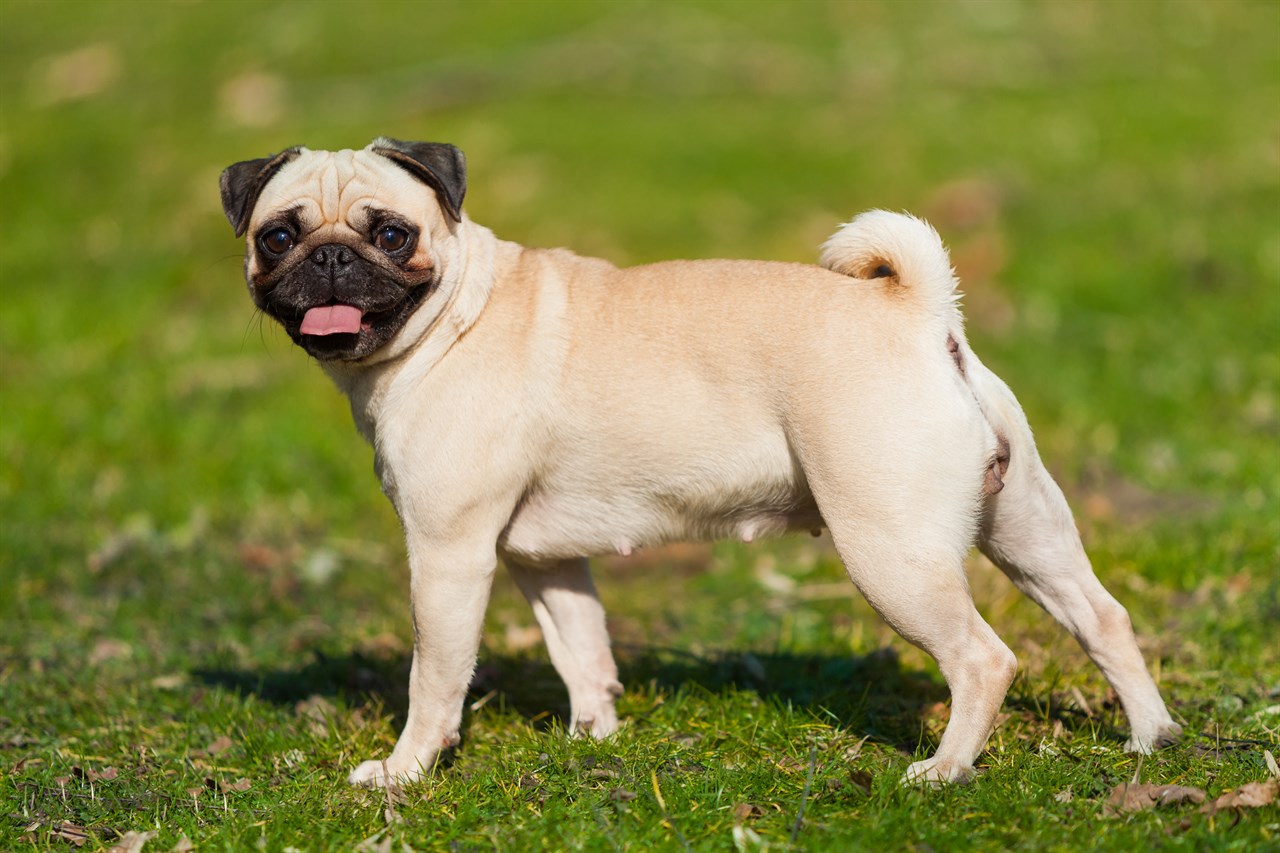Overall Trainability of the Pug

Pugs, with their charming personalities and affectionate nature, can be delightful to train. However, their trainability depends on various factors, including the individual Pug's temperament, the training methods used, and the consistency of training. Here's an overview of the overall trainability of Pugs.
Intelligence
Pugs are reasonably intelligent dogs. They can grasp commands and tasks relatively quickly, making them receptive to training.
Willingness to Please
Pugs are eager to please their owners. They thrive on positive reinforcement, including praise and treats, which can be highly motivating during training sessions.
Playfulness
Pugs have a playful streak, which can be both an asset and a challenge during training. Their energy and enthusiasm can make training sessions lively and enjoyable, but it can also lead to distractions.
Stubbornness
While Pugs are generally eager to please, they can also be a bit stubborn at times. Some Pugs may exhibit a "what's in it for me?" attitude, requiring a patient and persistent approach to training.
Short Attention Span
Pugs are known to have relatively short attention spans, especially when they are young. Keeping training sessions short and engaging can help maintain their focus.
Sensitivity
Pugs are sensitive dogs and can be responsive to their owner's tone of voice and body language. Harsh or punitive training methods can be counterproductive, leading to anxiety or avoidance behaviours.
House Training
House training can be somewhat challenging with Pugs, particularly during their puppy stages. However, with consistency and positive reinforcement, they can become well-house trained.
Socialisation
Proper socialisation is essential for Pugs. Early exposure to various people, animals, and environments helps prevent shyness or fearfulness as they grow.
Obedience Training
Basic obedience training, such as sit, stay, and come, can be successfully taught to most Pugs. Advanced training, such as agility or tricks, can also be enjoyable and rewarding for these intelligent dogs.
Discipline
Effective discipline for Pugs should always be based on positive reinforcement and gentle correction. Avoid harsh punishments, as Pugs may become fearful or uncooperative.
Questions and Answers
Are Pugs well-behaved dogs?
Pugs can be well-behaved dogs with proper training and socialisation. They are known for their affectionate and friendly nature but may require consistent guidance to exhibit good behaviour.
Are Pugs easy to house train?
House training Pugs can be moderately challenging, especially during their puppy stage. However, with patience, consistency, and positive reinforcement, they can become reliably house trained.
How do you discipline a Pug?
Discipline for Pugs should focus on positive reinforcement and gentle correction. Use commands and rewards for desired behaviour, and if they misbehave, redirect their attention rather than resorting to punishment. Harsh discipline can harm the Pug's trust and willingness to cooperate.